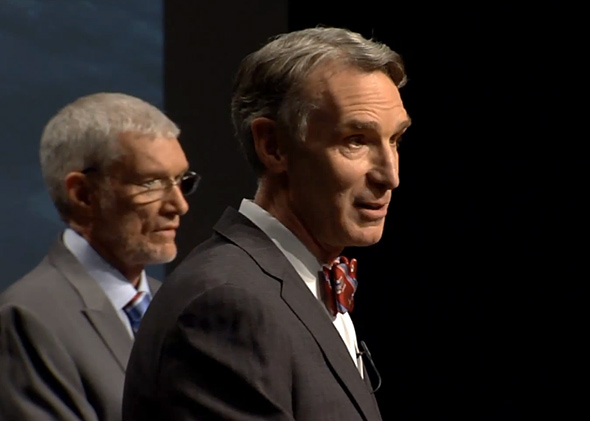atheism
Why We Should Debate Creationists
There are some who believe that Bill Nye “the science guy” lost the debate with Ken Ham on the question of “is creation a viable model of origins?”
And there are many who assert that he should never have agreed to the debate at all. That even debating Ham was to elevate creationism to the level where it vies with evolution for status as a credible theory.
 I will remain agnostic (if you’ll excuse the pun) on the former count, but I will firmly disagree on the latter.
I will remain agnostic (if you’ll excuse the pun) on the former count, but I will firmly disagree on the latter.
We should always debate those who promote unreason, and we should do so with great vigour and care. Of course, we need to pick our battles, or we’d be hammering away at all manner of fringe views. But we should particularly engage and debate those irrationalists who are most effective at spreading their views and undermining reason and science. This includes creationists like Ham.
This I believe is the case whether Nye “won” the debate or not.
If it is found that Nye has changed some minds, then it reinforces the power and efficacy of debate. If it is found that Nye “lost” the debate, it only underscores the need for us to get better at debating.
After all, if someone agrees to a debate where the standards of rational argumentation and evidence apply, then those of us who believe rational and scientific enquiry are the most reliable means to discovering facts have already won half the battle.
And if someone doesn’t agree to conform to the standards of rational argumentation and appeal to evidence, then we can more easily and clearly flag them as being the irrationalists they are, and call for them to be dismissed from the conversation.